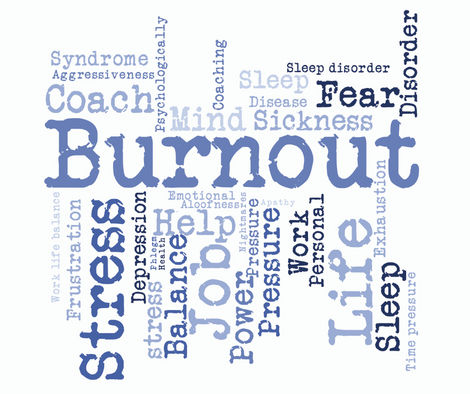Burnout

Burnout is the state in which a person feels emotionally,
physically and mentally exhausted due to various factors in their
work environment, such as a heavy workload, long work hours and a
toxic culture. When suffering from burnout, workers often
experience chronic stress and a sense of being overworked.
The reported rates of burnout spiked during the pandemic and have been rising ever since. In a survey by Future Forum, 42% of respondents reported experiencing burnout. This is the highest figure since May 2021. In 2019, the World Health Organisation began including burnout in their International Classification of Diseases, identifying it an “occupational phenomenon”.
Childcare is also a large contributing factor to burnout. A study found that 66% of working parents in the US meet the criteria for burnout.
Most vets and nurses also experience compassion fatigue. The incidence of burn-out is on the rise among veterinary professionals, and negatively affects personal and professional wellbeing, and the provision of care to patients. Several studies have shown that emotional exhaustion and mental health illnesses are significantly higher among vets and nurses. This correlates with the rate of suicide in the veterinary profession, which is four times the rate of the general public.
Despite these huge burdens placed on workers, many workplaces still view burnout as the responsibility of workers instead of managers.
Here are a few tips to help employees with burnout:
- Talk to your employer - communication is key, especially when it comes to your health
- Talk to your co-workers - if you're suffering from burnout, your colleagues may be too and supporting each other through this will strengthen your team
- Don't be afraid to ask for help - your employer and co-workers may be able to help you with something you're struggling with
- Prioritise your caseload - don't feel bad about managing your workload in terms of importance as this will help you and your team in the long run
- Make sure you get enough sleep - a regular and healthy sleep schedule helps reduce stress
- Maintain a healthy, balanced diet - this can be hard when on the go but eating the right foods can help maintain a healthy brain and body
- Exercise – while this may be the last thing you want to do after a busy day, a simple walk can release endorphins and help ease stress
- Set aside time for enjoyable activities - let yourself burn off steam when you have free time
- Celebrate the little things - setting smaller goals for yourself can help you feel better but don't forget to give yourself a pat on the back too
- Here are some tips for employers:
- Hold regular 1-to-1s - this keeps communication between you and your employees consistent and shows them that you are willing to listen to their queries in a private environment
- Hire or appoint a mental health first aider or wellbeing coach - the team will feel better knowing there is someone to help with their emotional needs
- Introduce employee wellbeing programmes
- Hold regular social gatherings - these can be as simple as a coffee and cake afternoon in practice or an activity outside of the practice which will help with team bonding and encourage the team to share feelings
- Hold regular team meetings to discuss caseload and ways to improve - this ensures that the team are always supporting each other to ease stress and facilitate good teamwork and that everyone's voice is heard
- Ensure everyone takes regular breaks - ensure the diary sets aside time in the day for lunch as well as other administrative tasks such as case follow ups and writing up notes
- Ensure employees take their vacation time
- Always promote the work-life balance
- Look at work schedules - try to ensure that where possible the working rota can be flexible
- Create a fun and healthy working environment
- Praise the team - appreciation and a congratulations for a job well done goes far